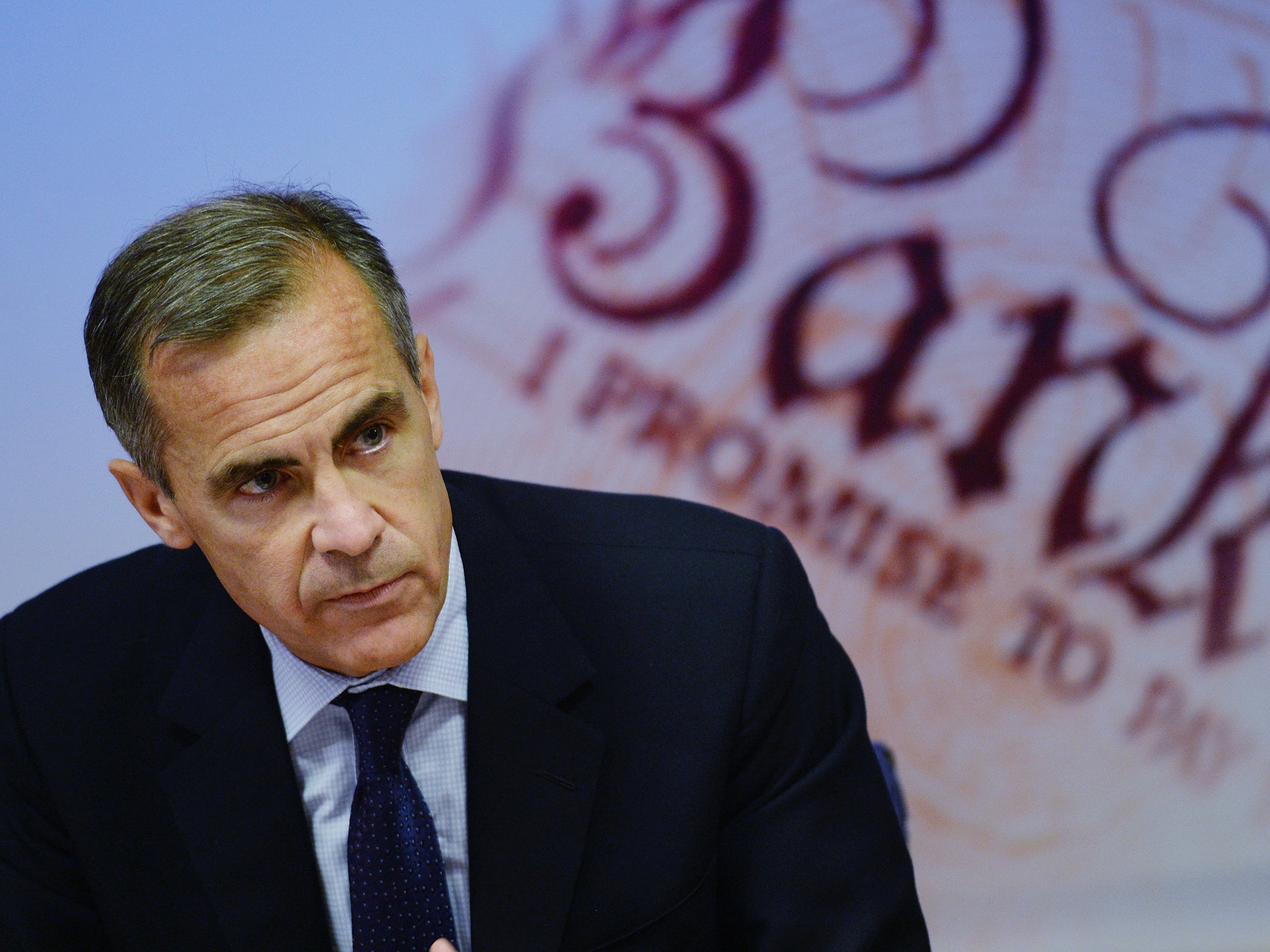Bank of England governor Mark Carney says UK productivity not harmed by migrant workers
Governor of the Bank of England said UK has one of the strongest job markets in the world

Mark Carney, governor of the Bank of England, has said that migrant workers are not to blame for stalling UK productivity, which has failed to meet expectations and contributed to low growth of household incomes.
Carney said there had been huge growth in employment in the UK and that the UK is now one of the strongest job markets in the world.
"There has been a big increase in British nationals wanting to work," he said.
Two factors have contributed to raising the employment rate, Carney said: a hike of 300,000 in the number of older workers and an increase in the number of people who want to work more hours, from 200,000 to 300,000.
He said net migration had only contributed 50,000 more workers.
In an interview with Radio 4's Today Programme, Carney refused to be drawn on when interest rates would rise. He said they might go up next year, but only if inflation rises above 2 per cent.
He chose instead to focus on productivity, or how efficient workers are, as the key factor in household income. The Bank of England would do as much as it could to improve productivity now that employment has improved, he said.
Here are the some quotes:
Productivity:
“It has been worse than we had expected and worse than we had expected for the last several years. We have been successively disappointed.”
“It matters for us because it’s our core responsibility to deliver low, stable, predictable inflation of 2%, it matters for the speed rate of the economy and it matters for living standards. It is the key determinant of wages and living standards.”
“We need to deliver price stability with inflation around our 2% target, and stability from a financial system that that functions and isn’t prone to big shocks. We are delivering on those two aspects but they are just building blocks. Foundations don’t deliver higher productivity.”
Carney was quick to dispel the idea that migrant workers are the big story in UK employment
Migrant workers:
“There has been a huge growth in employment – this is one of the strongest job markets in the world. There has been a big increase in British nationals wanting to work.”
“In the course of the last two years the number of older workers in their fifties or sixties that have stayed in the labour market is around 300,000 more and people want to work more hours, so we have another 200,000 to 300,000 more workers.”
“When you compare that to the increase in net migration, the first two numbers add up to more than 500,000, while the increase in net migration is 50,000.”
“Foreign workers tend to work in lower skilled jobs when they first come, even though they are more qualified. Over time they move up the skill chain to jobs that are more suited to them and contribute to an increase in productivity across the economy.”
“Now the only option to grow and increase productivity is to invest more, to do more with less.”
David Cameron hopes to renegotiate the terms of Britain's relationship with the EU, to give himself an advantage in the proposed EU referendum in 2017
EU referendum:
A referendum on the UK’s membership of the EU will take place: “As soon as necessary”
“There has been awareness of political uncertainty, which could be to do with the election or the referendum. But what investors been telling us is that they’ve not yet acted on that uncertainty. They continue to invest and continue to hire.”
The Bank of England
Inflation:
“There is no inflation.”
“Next month we think it will dip into negative inflation only briefly. By the end of year come it will come back up.”
“Our issue is not just to get inflation back up to the 2% target but to keep it there so it’s one thing British people and businesses don’t have to worry about. We’re seeing a pickup in wages and that will begin to accelerate.”
Interest rates:
“Increasing interest rates may not be sharp and not extreme but limited and gradual.”
“We have a weak global economy and ongoing fiscal consolidation that slows the pace of growth in the economy. There is also a dampening from currency.”
Subscribe to Independent Premium to bookmark this article
Want to bookmark your favourite articles and stories to read or reference later? Start your Independent Premium subscription today.

Join our commenting forum
Join thought-provoking conversations, follow other Independent readers and see their replies